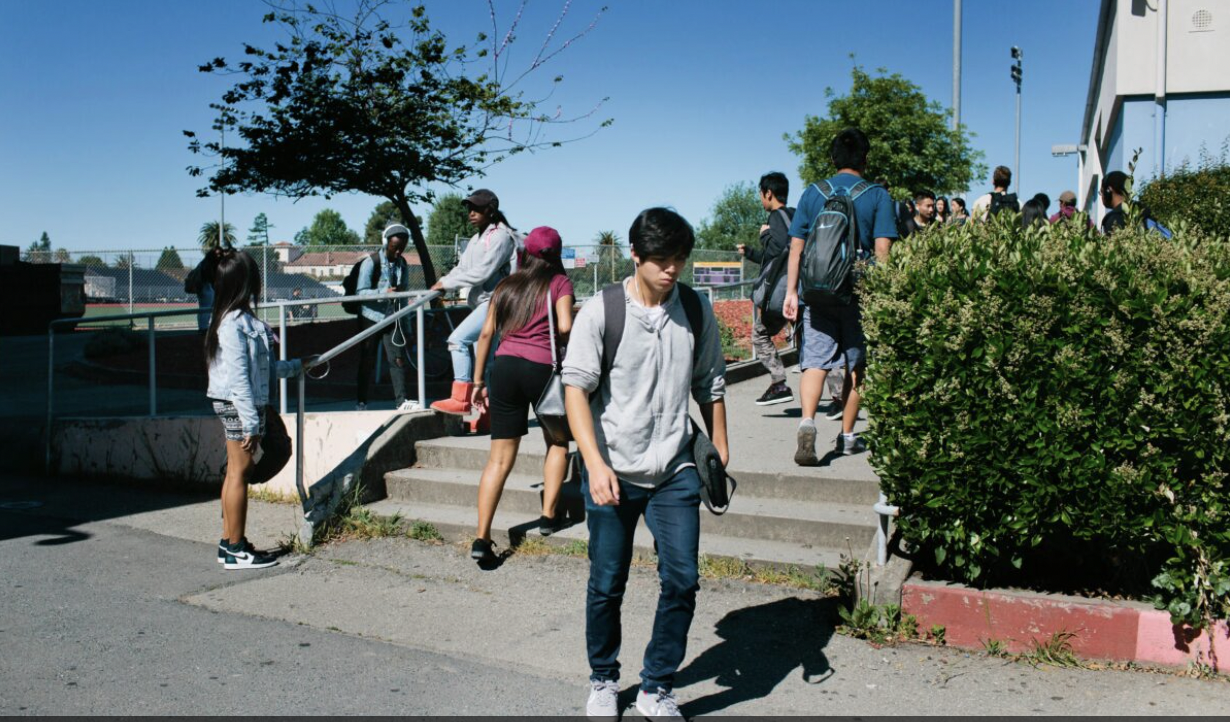For many young people, Tuesday’s massacre at a Texas elementary school could not have come at a worse time. Emotional scars are lingering from the pandemic, and schools are closing for the summer, cutting off students from their routines and access to campus mental health services.
But in some ways, students and schools are better prepared than ever to deal with tragedies like the one at Robb Elementary School. Investment in youth mental health is at an all-time high in California, and some schools’ relentless focus on emotional wellness has reduced the stigma and led to a plethora of mental health options that did not exist a few years ago.
“There’s been such a focus at schools on how we can support each other’s mental health,” said Melissa Wood, a school psychologist at a Kern County special education consortium. “There’s still a lot more work to do, but I think we’re on the right track.”
Tuesday’s shooting, in which a gunman in Uvalde, Texas, killed 19 children and two teachers, followed less than two weeks after a shooting at a Buffalo, New York, grocery store left 10 people dead. The tragedies come at the end of a difficult year for students and school staff, as they struggled with learning loss and behavioral and emotional challenges related to the pandemic. Although some students endured the pandemic with little adversity, others lost loved ones to Covid, saw their parents lose jobs or become seriously ill, and struggled intensely with remote schoolwork or caring for younger siblings.
EDSOURCE PODCAST: STUDENTS GRAPPLE WITH THE EVER-PRESENT THREAT OF GUN VIOLENCE
Close to 300,000 students have faced gun violence in their schools since the Columbine shooting in 1999. Many more have experienced threats of violence on their campuses. EdSource’s California Student Journalism Corps interviewed students who have survived a school shooting or shooting threats about how those experiences have impacted them.
Back-to-back difficulties can lead some children to experience “complex trauma,” which can have longer-lasting, and more serious, effects on children’s well-being than a single traumatic event, according to theNational Child Traumatic Stress Network. Prolonged “fight-or-flight” reactions can affect children’s ability to learn, form attachments, regulate behavior and make decisions. Complex trauma can also affect children’s physical health into adulthood, leading to a greater risk of heart disease and cancer.
“Compounding trauma is real. It can literally shape a child’s development,” said Chris Williams, director of school-based mental health and wellness at the Sacramento Office of Education. “The higher your score of (adverse childhood experiences), the more likely you are to have detrimental impacts.”
Dr. Nadine Burke Harris, California’s former surgeon general, made childhood trauma a cornerstone of her work. She encouraged schools to screen students for trauma, provide ample counseling services and teach social and emotional skills in the classroom.
Since the pandemic, Gov. Gavin Newsom and the Legislature have poured millions into youth mental health, on school campuses, within the health care system and in the community. The state has encouraged districts to open mental health clinics and wellness centers on campus, contract with local clinics to provide therapy services, hire more counselors, invest in social-emotional learning, train teachers to recognize signs of trauma, start peer counseling programs and take other steps to help students cope with depression and anxiety.
The Sacramento County Office of Education recently teamed with the county public health department to bring mental health clinicians to every school in the county, adding to schools’ existing counseling staff. Other counties and districts have made similar moves to streamline the ties between schools and public health departments, so students can get access to free mental health care whenever they need it.
These kinds of day-to-day, systemic changes are necessary if schools want to see long-term improvements in students’ emotional well-being, Williams said. Responding to incidents like school shootings is important, he said, but students’ mental health should be an ongoing priority.
“We have to get away from the notion of ‘treating’ mental health,” he said.
“Trauma is not an isolated incident. A school shooting is a horrific event, period, but it’s just one thing students might be facing.”
There’s plenty that parents, teachers and other adults can do to help children process trauma, Wood said. For younger children, playing and art can help them work through feelings of sadness, fear or confusion. Older students can learn healthy, nondestructive ways to cope, such as talking to trusted friends or adults, exercising, writing in a journal, doing artwork, being alone or going somewhere safe and blowing off steam.
Wood encouraged parents to use the summer months to slow down and relax with their children.
“Make the most of every opportunity you have with your kids,” she said. “Put the phone down. Spend time with them one-on-one. It’ll strengthen their bond with you. I think collectively, we all need more of that.”
HELP OVER THE SUMMER
With schools closing for the summer, some students might lose access to mental health services they received from counselors, psychologists or social workers on campus. Here are some suggestions for parents who want to find help for their children over the summer:
- Local school districts may have counselors available through summer school or camp programs.
- Most county health departments also have pediatric mental health services.
- Community-based health clinics may offer free or low-cost counseling services.
- Call or text the California Youth Crisis Line at (800) 843-5200.
- Call the suicide prevention hotline, (800) 273-8255.
